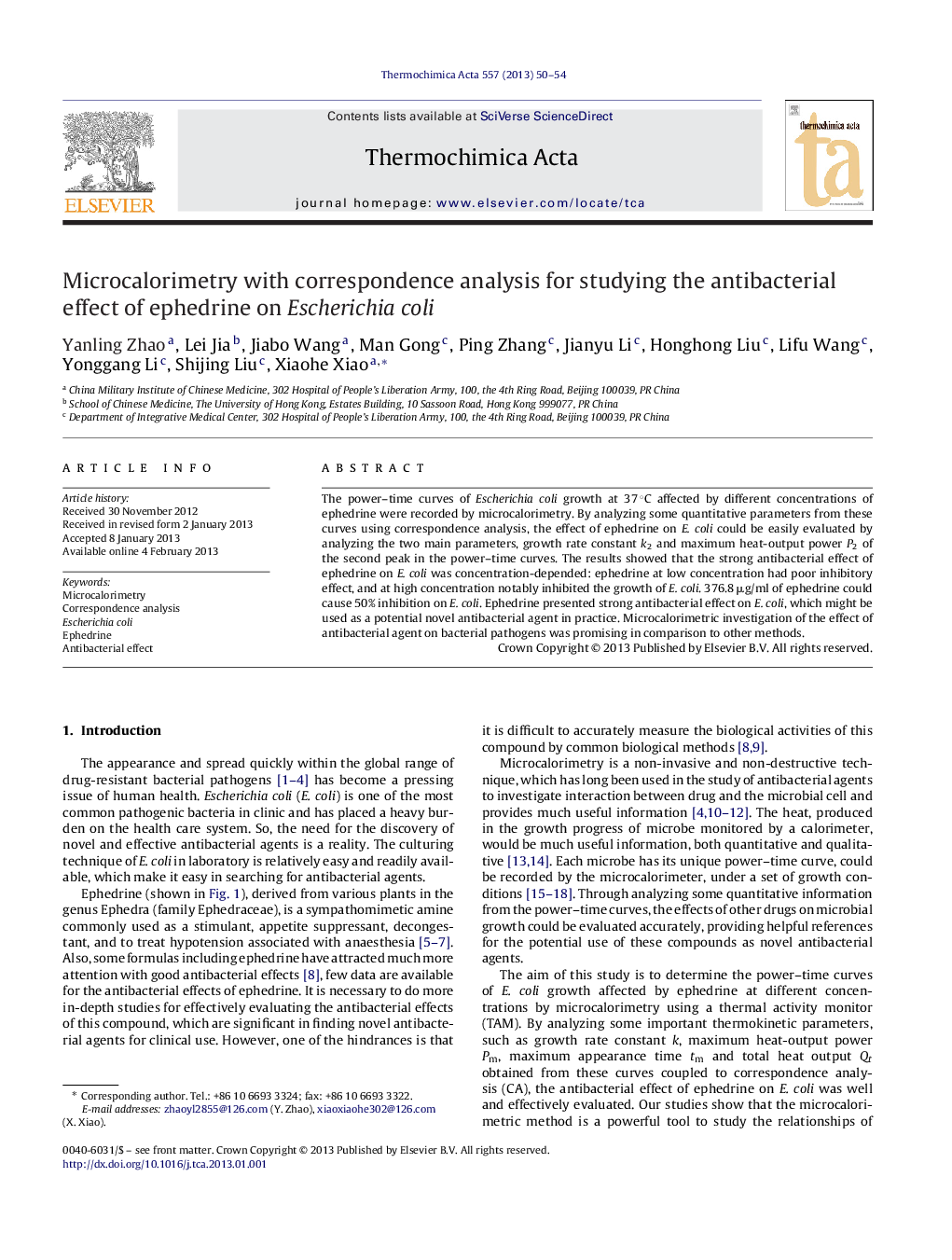| Article ID | Journal | Published Year | Pages | File Type |
|---|---|---|---|---|
| 673932 | Thermochimica Acta | 2013 | 5 Pages |
The power–time curves of Escherichia coli growth at 37 °C affected by different concentrations of ephedrine were recorded by microcalorimetry. By analyzing some quantitative parameters from these curves using correspondence analysis, the effect of ephedrine on E. coli could be easily evaluated by analyzing the two main parameters, growth rate constant k2 and maximum heat-output power P2 of the second peak in the power–time curves. The results showed that the strong antibacterial effect of ephedrine on E. coli was concentration-depended: ephedrine at low concentration had poor inhibitory effect, and at high concentration notably inhibited the growth of E. coli. 376.8 μg/ml of ephedrine could cause 50% inhibition on E. coli. Ephedrine presented strong antibacterial effect on E. coli, which might be used as a potential novel antibacterial agent in practice. Microcalorimetric investigation of the effect of antibacterial agent on bacterial pathogens was promising in comparison to other methods.
► The power–time curve of Escherichia coli affected by ephedrine was recorded by microcalorimetry. ► Two main quantitative parameters were obtained by correspondence analysis on many parameters from the curves. ► The strong antibacterial effect of ephedrine on E. coli was concentration-depended. ► 376.8 μg/ml of ephedrine could cause 50% inhibition on E. coli.
